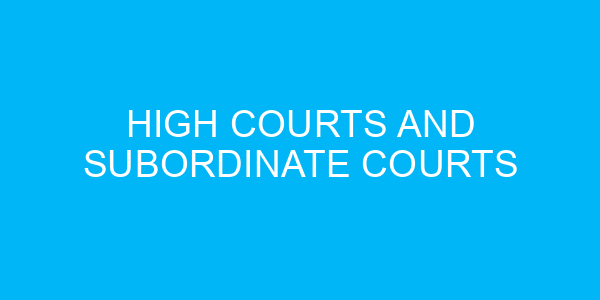21. The district courts are established under which legislation?
a) Indian Penal Code
b) Code of Civil Procedure
c) Indian Evidence Act
d) Constitution of India
22. Which one of the following is not a criminal court?
a) Magistrate Court
b) Sessions Court
c) High Court
d) Court of Appeal
23. The highest judicial authority in a district is the:
a) Chief Judicial Magistrate
b) District Magistrate
c) Sessions Judge
d) Chief Justice of the High Court
24. Which one of the following is not a qualification for appointment as a judge in a subordinate court?
a) Must be a citizen of India
b) Must have practiced as an advocate for a certain number of years
c) Must have a law degree from a recognized university
d) Must have political affiliation
25. Which one of the following statements is true about the jurisdiction of subordinate courts?
a) They have unlimited jurisdiction over all civil and criminal matters
b) They have exclusive jurisdiction over constitutional matters
c) They have appellate jurisdiction over cases decided by higher courts
d) They have no jurisdiction to decide cases independently



